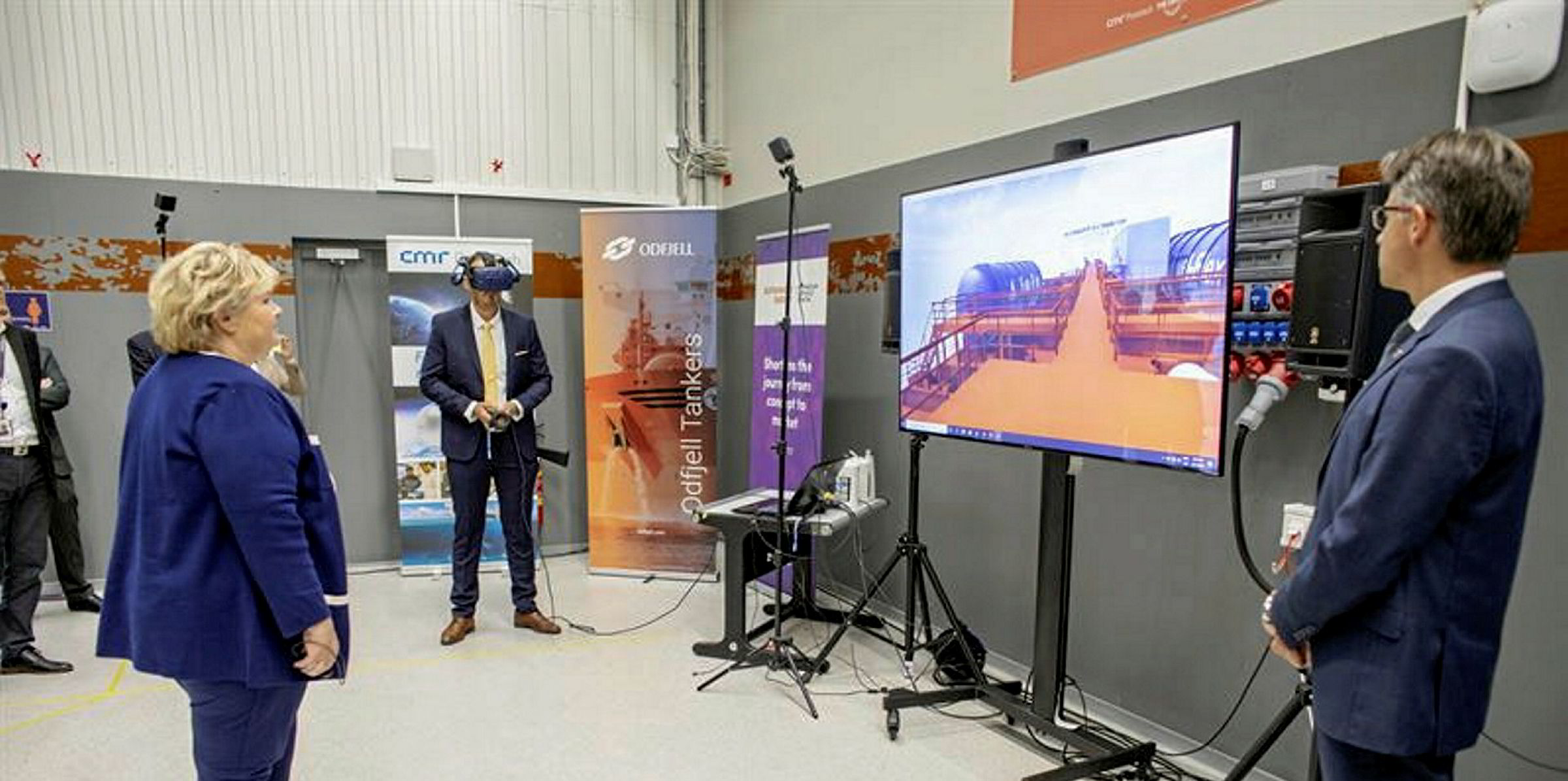Norwegian chemical tanker owner Odfjell has launched a new flexible fuel cell project that has gained the attention of the country's prime minister, Erna Solberg.
The politician witnessed how the shipowner and its partners Wartsila, Prototech and Lundin Energy Norway are building a pilot system to use fuels including green ammonia and LNG.
She was attending a ceremony marking the expansion of Norway's Sustainable Energy Catapult Centre into a "future fuel test centre".
The technology will cut emissions by between 40% and 100% depending on the fuel available to a vessel.
The 1.2 MW system will be tested at the Stord-based centre and then installed and trialled on one of Odfjell's newest chemical tankers.
Efficiency improved
"Our tests show a CO2 reduction of as much as 40% to 45% when using LNG, compared to current solutions," said Bernt Skeie, CEO of fuel cell company Prototech.
"Increased efficiency and reduced fuel consumption also provide significant cost savings, and the ship will be able to sail significantly longer on the same amount of energy."
The idea is have the system running emissions-free from ports where ammonia is available for bunkering in the future, but the cells will initially use LNG.
The technology also enables direct capture of carbon dioxide.
The partners said battery solutions are currently not suitable for operating ships that sail long distances.

"Ships are to be operated for 20 to 30 years, and we need flexible solutions that can meet future emission requirements," said Odfjell's vice president of technology Erik Hjortland.
"We do not have time to wait, we have to think about zero emissions already now."
As a result, Odfjell's focus is on the technology rather than the fuel type.
"Fuel cell technology gives us flexibility that ensures environmentally efficient operation regardless of fuel changes that may occur in the years ahead," Hjortland added.
So far, the project has been funded with support from Gassnova, the Norwegian state enterprise for carbon capture and storage, and the Research Council of Norway, as well as the partners themselves.
"The new energy solution has the potential to take us a big step closer to the goal of climate neutrality," said Wartsila technical director Ingve Sorfonn.
"Fuel flexibility will be a significant contribution to secure future solutions for new ships. And it does not stop with ships; this solution can also be used in offshore oil and gas operations."
Momentum increasing
Fuel cells are gaining traction among shipowners as one solution to the industry's decarbonisation.
This week, Teco Group spin-off Teco 2030 raised $8.6m in an Oslo initial public offering to continue work on a hydrogen fuel cell project.
Harald Solberg, chief executive of the Norwegian Shipowners' Association, said that in the long-run, scaling up these solutions will be vital to climate goals, but they will also have business value and create new jobs.
"Norwegian shipping has set ambitious climate goals. This type of project is very important for us to be able to develop solutions that quickly reduce emissions," he added.





